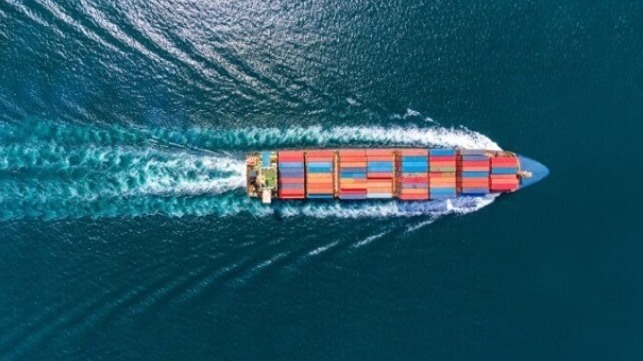US and Norway Launch Green Shipping Challenge to Build Decarbonization

Speaking with world leaders at the third virtual Major Economies Forum President Joe Biden redoubled the Unites States’ commitment to lead in the efforts to address climate security and in the process also improve energy security. Speaking with representatives from countries that collectively make up approximately 80 percent of global economic output, the president outlined a series of new initiatives and investments including the launch of the Green Shipping Challenge.
The program was reported to be the largest world gathering between the 2021 and 2022 UN COP conferences. Many of the efforts outlined, including the shipping program as designed as lead-ups to the upcoming COP27 meeting beginning November 7, 2022, in Sharm El-Sheikh, Egypt.
“I urge those countries that have not yet gone to set a 2030 emissions target to align with the Paris temperature goal, to strengthen their targets for COP27. At the same time, we need new initiatives to accelerate our progress toward our goals and bolster our resilience,” said President Biden.
The International Energy Agency he pointed out is calling for $90 billion worth of demonstration projects for this decade. The United States is pledging a $21.5 billion contribution toward this goal. Among the initiatives underway in the United States that were highlighted are programs to create hydrogen hubs all around the United States as well as efforts to boost the production of electrolyzers and one of the world’s largest clean hydrogen storage facilities to be located in the U.S.
The President also outlined a series of new initiatives to maximize efficiency and reduce emissions across the energy, transportation, and agricultural sectors, inviting other countries to join the programs. Among the challenges he laid out was an expanded effort to accelerate the Global Methane Pledge of which 115 countries have already joined. The focus would be on reducing methane leaks, primarily from the oil and gas sector as well as employing capture technologies.
Focusing specifically on the shipping industry the president in his presentation highlighted that emissions from the shipping sector are significant and continue to rise. While citing the progress made at COP 26, including the Declaration on Zero Emission Shipping by 2050 and the Clydebank Declaration supporting the establishment of green shipping corridors, Biden said more needs to be done to bring the trajectory of the shipping industry in line with the goals of the Paris Agreement.
To build on these efforts, the United States and Norway are launching a Green Shipping Challenge for COP 27. This initiative encourages governments, ports, maritime carriers, cargo owners, and others in the shipping value chain to come forward with concrete steps that will help put the international shipping sector on a credible pathway this decade toward full decarbonization no later than 2050. These could include, for example, steps to produce zero-emission fuels; develop zero-emission bunkering and recharging capabilities; deploy low- or zero-emission vessels, and create, or provide financial and technical support for green shipping corridors. President Biden invited the leaders to express their support for the Green Shipping Challenge and to announce specific actions under the initiative at COP 27.
The NGO Environmental Defense Fund responded to the presentation by saying, the “Green Shipping Challenge is exactly the call-to-action that the industry needs. To reach zero emissions by 2050, the shipping sector needs to take ambitious action to reduce fossil fuel usage right away and accelerate the uptake of zero-carbon fuels.”

that matters most
Get the latest maritime news delivered to your inbox daily.
EDF cited its work with the Maersk-McKinney Moller Center for Zero Carbon Shipping which found there are plausible pathways to fully decarbonize shipping by 2050. The analysis concluded that with immediate action to test and de-risk new fuel pathways, stakeholders can reduce long-term costs and manage the risk of price or fuel supply shocks in the future.
“Acting now to begin our voyage to zero carbon shipping will not only work toward a more stable, resilient and healthy climate but also a stable, resilient and healthy shipping industry,” concluded Marie Hubatova, Senior Manager, Global Transportation at Environmental Defense Fund.
